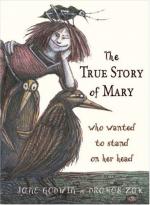|
This section contains 812 words (approx. 3 pages at 300 words per page) |

|
Mary Wollstonecraft has long been recognized as one of the most influential feminist theorists in history, largely through her Vindication of the Rights of Woman (1792). Late-twentieth-century scholarship also began to explore her other texts and their significance.
Wollstonecraft's work is a product of the late Enlightenment, emphasizing the need to achieve virtue and progress through development of reason and sensibility. It also reflects ideas of the Dissenters and political radicals who stood among the relatively few English supporters of the French Revolution. Wollstonecraft's early mentors were Richard Price and Joseph Priestley. The circle with whom she continued to associate included writers and artists such as William Blake, Thomas Paine, Henry Fuseli, and William Godwin. Like them, she opposed slavery, standing armies, and many elements of political patriarchy such as primogeniture, aristocracy, and probably monarchy. She shared their critique of the corrupting influence of political...
|
This section contains 812 words (approx. 3 pages at 300 words per page) |

|


